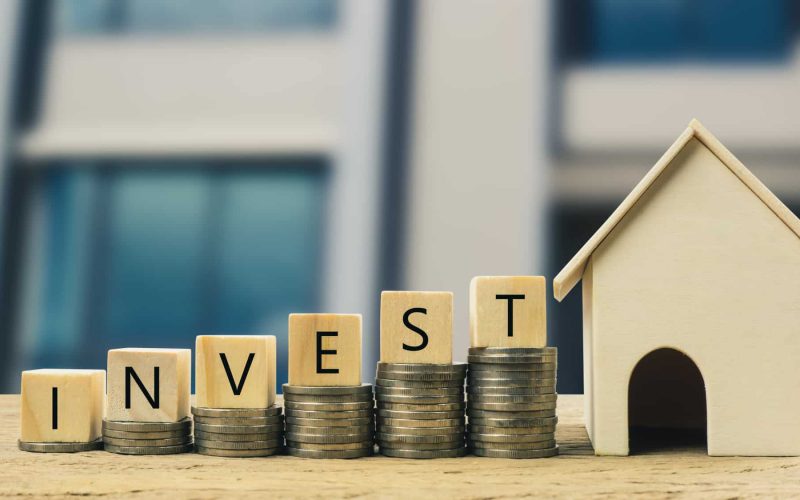If you’ve reached a point in life where you’ve saved up and want to increase your monthly income, jumping into real estate investments is a great step forward. And it’s also considered one of the best ways to build wealth today.
Though the real estate market has seen high demand from buyers in recent years, the current “seller’s market” is a product of many factors. And this is not only a direct result of the COVID-19 pandemic but from ramifications caused by the great recession of 2008.
Regardless of the current economic standings of 2021, investing in real estate requires strategy and planning. And if you’re going to become a successful investor, you need to pay attention to a few key factors prior to signing your name on the dotted line.
Here, we’ll explore a few of the biggest factors regarding real estate investments and what you need to pay particular attention to.
Location, Location, Location
It can’t be stressed enough. Location is the first key element that you need to consider before ever placing your money on the table. Because location can either make a good investment great or turn a great investment into a total disaster.
For example, if you grew up in a nice quaint neighborhood in the ‘80s, chances are that this neighborhood has undergone numerous shifts in demographics over the last 40 years. As such, you need to pay close attention to the local socioeconomic standings of the residents within the neighborhood, as well as the liveliness of the surrounding business community as well.
These elements will give you vital information when it comes to making a sound investment. Because if the overall demographics have shifted to lower-income status, this trend will likely continue. And you don’t want to have your money tied up in a losing situation.
Understanding Down Payment Differences
Rental properties and personal homes differ widely when it comes to the types of loans you’re able to secure. And you have to understand the difference before you even begin your property search.
When you borrow capital for property investment, you’re not securing a personal home loan. In fact, rental loans have much stricter rules attached to them.
For example, if you were to seek out a loan for a single-family home, you might be able to get away with putting down anywhere from 1 to 6 percent depending on the home value and your credit score. But with a rental property, you’ll likely need to put down anywhere between 15 and 25 percent of the value of the home.
If you’re wondering why this is the case, investment properties typically don’t qualify for mortgage insurance. This along with stricter financing requirements usually means that the down payment for an investment property is going to be quite substantial as compared to a personal home loan.
Expenses
Purchasing an investment property isn’t as simple as buying the property and watching the money flow in. In fact, this is a labor of love in most cases as there will be a variety of additional expenses you’ll need to consider, even if you purchased the property with no money down.
For example, consider the following variable expenses you might encounter:
- HOA fees
- Property taxes
- Property management fees (if you’re not a hands-on investor)
- Landscaping and upkeep
- Fixes and repairs
- Skipped rent payments
- Lapse between renters
- Homeowner’s insurance
In the perfect case scenario, as an investor, you purchase the property on a Tuesday and rent it out on a Friday without ever having to cover the full amount of your mortgage payment on your own.
But let’s face it, we don’t live in a perfect world, so it’s wise to plan on having to cover variable expenses.
Investing in a rental property can be a great way to create additional income, but you have to go into the process knowing that there will be a great deal of work involved. So good luck, and happy investing.
What Are the 3 Most Important Factors in Real Estate?
When purchasing a home, the three most critical variables are location, location, and location. Too often, I hear individuals discussing making judgments based on the home itself rather than the location, which is a mistake.
What Is the 1% Rule in Rental Investment?
The 1% rule of real estate investing compares the cost of an investment property to the expected gross income. To pass the 1% rule, a potential investment’s monthly rent must be equal to or less than 1% of the purchase price.
What Are the Three Pillars of Real Estate?
He refers to them as the three pillars. He used to have his real estate students at Seattle Pacific University stand up on their desks, just like in the iconic film Dead Poets Society, and yell at the top of their voices, “Oh Captain my Captain. The three pillars are location, terms, and expandability.”
What Are the 3 Most Important Things When Looking To Buy Real Estate?
What to Look for When Purchasing a Home
Look for the best deal.
Place the location first.
Consider the long term.
Examine the property’s condition.
Don’t get caught up in little superficial aspects.
Stick to your essentials.






